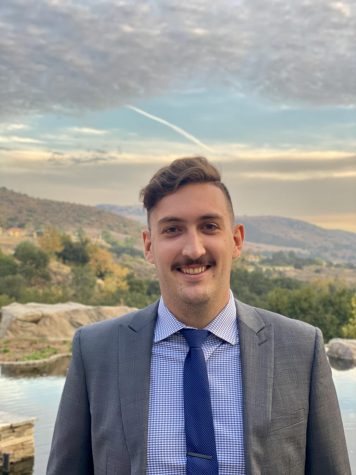Nearly two months after Parking & Transportation Services announced parking enforcement would transition to a virtual system, faculty and staff permits still hang in the balance and from rearview mirrors.
Representatives from the two faculty and staff unions on campus are currently in the middle of the meet and confer process in order to address members’ concerns about privacy and disciplinary action.
In early August, Parking & Transportation Services announced San Diego State would be transitioning to a virtual parking enforcement system, joining several other California State Universities.
The change did not come as a surprise, though many students, faculty and staff were left confused as to how the new system, which plans to enforce parking rules with license plate readers, would work.
While it did not take long for students to grow accustomed to the new system, many faculty and staff have yet to give in. Due to ongoing negotiations between their unions, most faculty and staff are still required to display a physical parking permit.
Both the California Faculty Association and the California State University Employees Union are currently in the middle of the meet and confer process with the university, though each union is in discussions regarding different issues.
SDSU’s chapter of CSUEU is concerned about the disciplinary implications of the new system, while CFA is trying to work with the university to ensure lecturers who teach at multiple CSU campuses only need to purchase one permit.
According to the CSUEU’s website, the union is concerned virtual parking systems will be “used to track employees’ attendance or for employee discipline.”
Robert Yslas, CSUEU Chapter 318 president and SDSU faculty member, echoed these concerns. He said the university included language in their proposed agreement that concerns CSUEU members.
“(The university) is lifting language from the surveillance policy already in place and trying to cookie-cutter it for this situation,” Yslas said.
The problem, he explained, is that the surveillance policy the university is pulling the language from is too broad in its qualifications for disciplinary action and fails to define “egregious” behavior clearly.
“If we have a faculty member who is not obeying the California Vehicle Code, Education Code or university policy in regards to parking on campus and the use of a parking permit, they are subject to citation, and it’s up to the parking officer and university police to make that decision,” Yslas said. “We don’t believe that there should be a disciplinary issue assigned as far as human resources or employee relations needs to be involved.”
The use of automated license plate readers (ALPRs) poses serious security and privacy concerns which the university has yet to address publicly.
Under a California state law that went into effect in 2016, any person or entity, including public agencies, that uses ALPR or collected ALPR data must post a privacy and usage policy online.
The only reference to the new virtual system on the Parking & Transportation Services website is the original announcement of the policy change. Also, parking permit information and the frequently asked questions section still references the old system.
Yslas did say the university has agreed to not share the ALPR data as well as keep it anonymized.
Dr. Doreen Mattingly, chair of the Women’s Studies department and SDSU CFA chapter president said the faculty union is working to maintain the rights CFA members currently have.
She said it is not unusual for lecturers to work at SDSU and California State University San Marcos. Under the previous system, parking permits were honored at both universities, but the virtual system makes this impossible without sharing license plate data.
“We want to make sure our members don’t end up paying more for parking because of this system,” Mattingly said.
When asked to comment on the CSUEU and CFA’s concerns, Parking & Transportation Services Director Deborah Richeson declined to comment on the ongoing negotiations.
Ultimately, both Mattingly and Yslas expressed a desire to work with the university to come to an understanding quickly.
“We’re eager to move forward,” Yslas said. “We know the university has invested money into the new system, so we don’t want to hinder the process, but we also want to make sure that our members are protected, that all employees are protected and not disciplined for something as simple as a parking ticket.”












